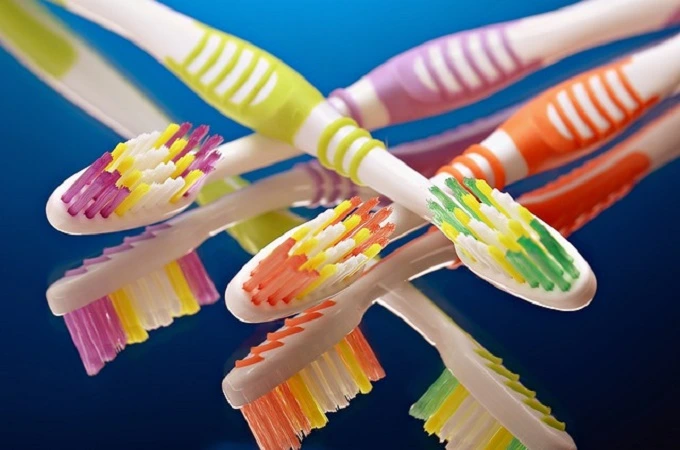8 answers to everyday questions that will help improve the quality of life

We are especially interested in the solutions to uncommon questions that reveal the veil of mystery that has tortured humanity for decades. Simple, everyday questions don’t bother us because we’re regularly exposed to these phenomena. Many “boring” facts from everyday life, on the other hand, are far more beneficial than “sensational” ones, allowing people to not only improve their quality of life but also make it safer.
1. How often should I change my bed linens?

According to a survey conducted in the United Kingdom, not everyone knows how often bed linen should be replaced. About half of single men say they don’t change their bed linen for two months or more in a run, which generates at the very least confusion and disgust.
There is no universal answer to this issue, although, on average, it costs to change bed linen every seven days in the summer. If you shower in the morning, it’s worth replacing your underwear after a week because you’ll go to bed unclean and sweaty. If we’re talking about the cold or people who shower in the evening, this timeframe extends to every 14 days. Bed linen becomes unpleasant to touch and smell after two weeks, and it is also an ideal environment for pathogen reproduction.
2. What can I eat after the period has expired?
Expired items are divided into three categories: safe to eat, safe to eat with caution, and unsafe to eat. Almost all dry foods, such as flour, rice, pasta, lentils, and the like, belong to the category of edible items. You don’t need to mention salt or sugar because they are natural preservatives that have been stored for generations. Honey is another commodity that can be consumed after its expiration date. The most important thing is that they are free of insects, mold, and fungus.
Eggs, fermented dairy products like yogurt and cheese, dried fruits, and other canned goods like pickles and jam are among the things that should be avoided. Naturally, in the case of fermented milk and dairy products, and eggs, the duration should be limited to a few days.
Under the right conditions, dried fruits can be kept for years. Pickles and jams can be preserved if there is no oxygen access inside the jars, and they are stored in a dry, dark, and cool location. However, caution should be exercised in this situation.
Any meat or fish items fall into the last category of inedible products since even a huge number of preservatives will not prevent them from decomposing after the expiration date.
3. When to take a shower

There is no definitive answer to this question, and it is entirely dependent on your lifestyle. A morning shower might help you feel better and prepare your body for productive work. You won’t have to go to bed with a dripping head. However, as described in the paragraph on changing the bed linen, you would go to bed unclean and sweaty in this instance.
It allows you to unwind before bed, keep your bed linens clean for longer, and wash away all the dirt and pollen that has accumulated on your skin throughout the day, which is especially beneficial for allergy sufferers. The evening shower is the clear winner in terms of the number of benefits.
4. What is the maximum amount of coffee I can take per day?

Previously, coffee was thought to be a near-universal cure-all. On the contrary, it has been crushed into the mud, with numerous cases of insomnia, cardiovascular illness, and other ailments attributed to it. The truth can never be found in the middle.
Physicians advise that an average adult consumes no more than 400 mg of caffeine per day, equivalent to around 4 cups of coffee. Anything more raises your chances of developing cardiovascular disease.
The permitted dose for pregnant women is two times lower. In this state, it’s even preferable to avoid stimulants entirely.
5. How long does it take to keep healthy by exercising?

The World Health Organization and most sports ministries have already established a definite threshold – at least 150 minutes per week. This equates to around 20-25 minutes of daily activity.
These values are, of course, approximations and averages. It all relies on a person’s gender and age and his physical fitness, athletic activity, lifestyle, and other factors. Only an experienced trainer can give a more accurate amount of load, and a doctor is better.
6. When is the best time to retire to bed?

There is no consensus here, as there is with most of the topics mentioned above. Furthermore, specialists agree that the most important factor is how steady your sleep and wakefulness rhythms are and the amount of sleep you get.
For example, falling asleep at 2 a.m. and waking up at 9-10 a.m. causes far less harm to the body than sleeping at 10-11 p.m. and waking up at 6, 7, or 8 a.m., as recommended by most doctors.
7. What is the most important meal of the day?
It is commonly assumed that this is breakfast, although this is a myth. Each meal, of which there should be at least three, is important. Today, doctors are more convinced of the accuracy of fractional nutrition, which involves eating roughly 5-6 small meals each day to avoid hunger and increased acidity, which can lead to diseases like GERD, in which acid is ejected from the stomach into the esophagus.
Instead of debating whether the meal is more important, consider food quality and the transition to the Mediterranean or other trace-element-balanced diet.
8. Should I wet my toothbrush before putting toothpaste on it?

Since infancy, we’ve been instructed to wet the brush first, then spread the paste, and then brush our teeth. As a result, it is more correct to do, according to parents or grandparents, because water softens the bristles.
It worked once upon a time, but not any longer. When toothbrush bristles were composed of natural materials like horsehair, it was highly suggested to water them to soften them. Propylene and other modern materials do not react with water, at least not in warm water.
It makes no sense to wet the paste in the first place because it already includes water. When using dental powder, this process was necessary. You don’t need to moisten the paste because you’ll be washing it off or spraying it anyway.




